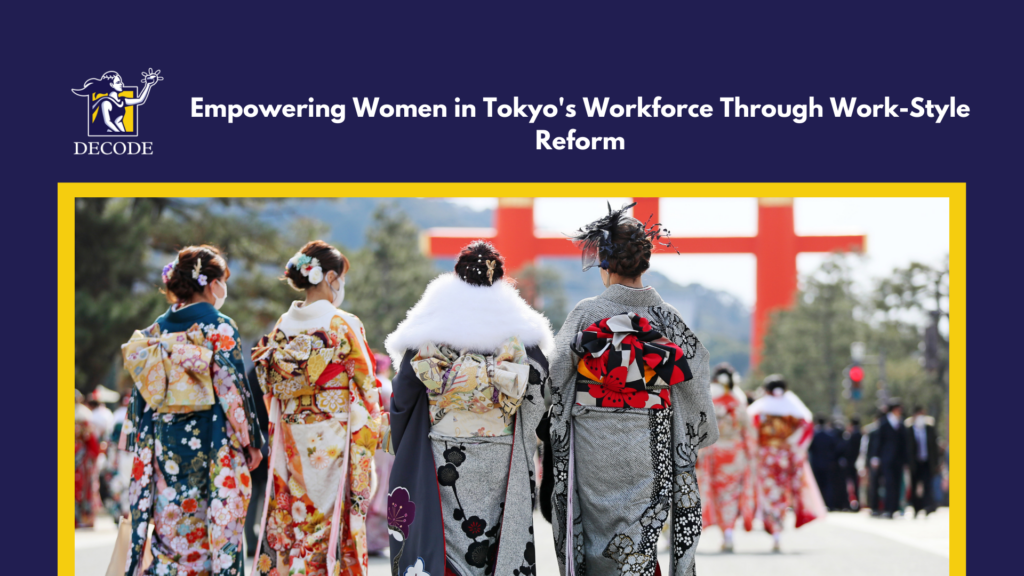
While a conflict between work and other off duty responsibilities is increasingly significant, Tokyo’s government is being bold in addressing these needs. From April next year, TMG is to start a 4-day workweek as a component of the campaign of the new work style reform. This is aimed at improving the work-life balance system as well as correctly positioning women for equal opportunities in the work place, since they have always been a disadvantaged group.
A Progressive Shift for Women’s Empowerment
Governor Yuriko Koike, during her policy speech at the Tokyo Metropolitan Assembly, highlighted that flexible work arrangements are critical, especially for women. In Japan, women have long struggled to balance family responsibilities with their careers, often facing the harsh reality of limited career advancement opportunities, particularly for those who take time off for child-rearing. By adopting a four-day workweek, Tokyo is embracing a more modern approach to labor, one that values flexibility and recognizes the diverse needs of its workforce, particularly women.
The new policy is expected to reduce the strain of long working hours, which are a persistent issue in Japan’s work culture, and provide women with the time they need to manage both their careers and family life more effectively. With more time to dedicate to personal and family obligations, women will be able to pursue career growth without the need to sacrifice their well-being or personal goals. As a result, the policy could help increase female participation in the workforce and reduce gender disparities in career advancement.
A Broader Trend of Work-Style Reform
Tokyo is not the first local government in Japan to respond to increase labor shortage through enhancement of working conditions. Other cities and regions are considering other similar measures to address burnout issue, improve workers’ output, and diversity the workforce. These reforms thus include, among others, proposals which seek to have workers work for a duration of four days in a week with the objective of giving the workers ample time to be able to rest and engage in other activities that do not relate to work yet are productive that will in one way or the other improve worker satisfaction and productivity.
This initiative does indeed bear testament to a further and more significant worldwide trend that is moving away from a strictly divided world of work and personal life. Due in part to the COVID19 pandemic, many organisations internationally have started to consider new working patterns. It is perhaps no surprise, given the efforts of organisations to retain employees’ loyalty and achieve the highest level of productivity, that flexwork arrangements have emerged as one of the most valued benefits that employees demand.
While Tokyo’s government and other authorities are trying to encourage greater flexibility at the workplace, at Decode we know that flexibility is the name of the game in any line of business, and especially in trading. Every trader is different – some prefer automated trading systems while others are more hands-on, and each trader has different objectives in their trading activity, and that is why Decode provides its clients with three different trading platforms which correspond to the trader’s experience level as well as his or her trading preferences. From new customers seeking introduction to a variety of markets to successful traders developing and perfecting their tactics to rookies who require additional tools and options, Decode offers the necessary platform.
Conclusion
Tokyo’s introduction of a four-day workweek marks a pivotal moment in Japan’s efforts to modernize its labor policies and create a more inclusive workforce. By prioritizing flexibility and work-life balance, the city is taking meaningful steps toward empowering women and addressing the challenges they face in balancing career and family responsibilities. This policy also signals a shift toward a more sustainable and productive approach to work, one that can attract and retain top talent in an increasingly competitive global market.